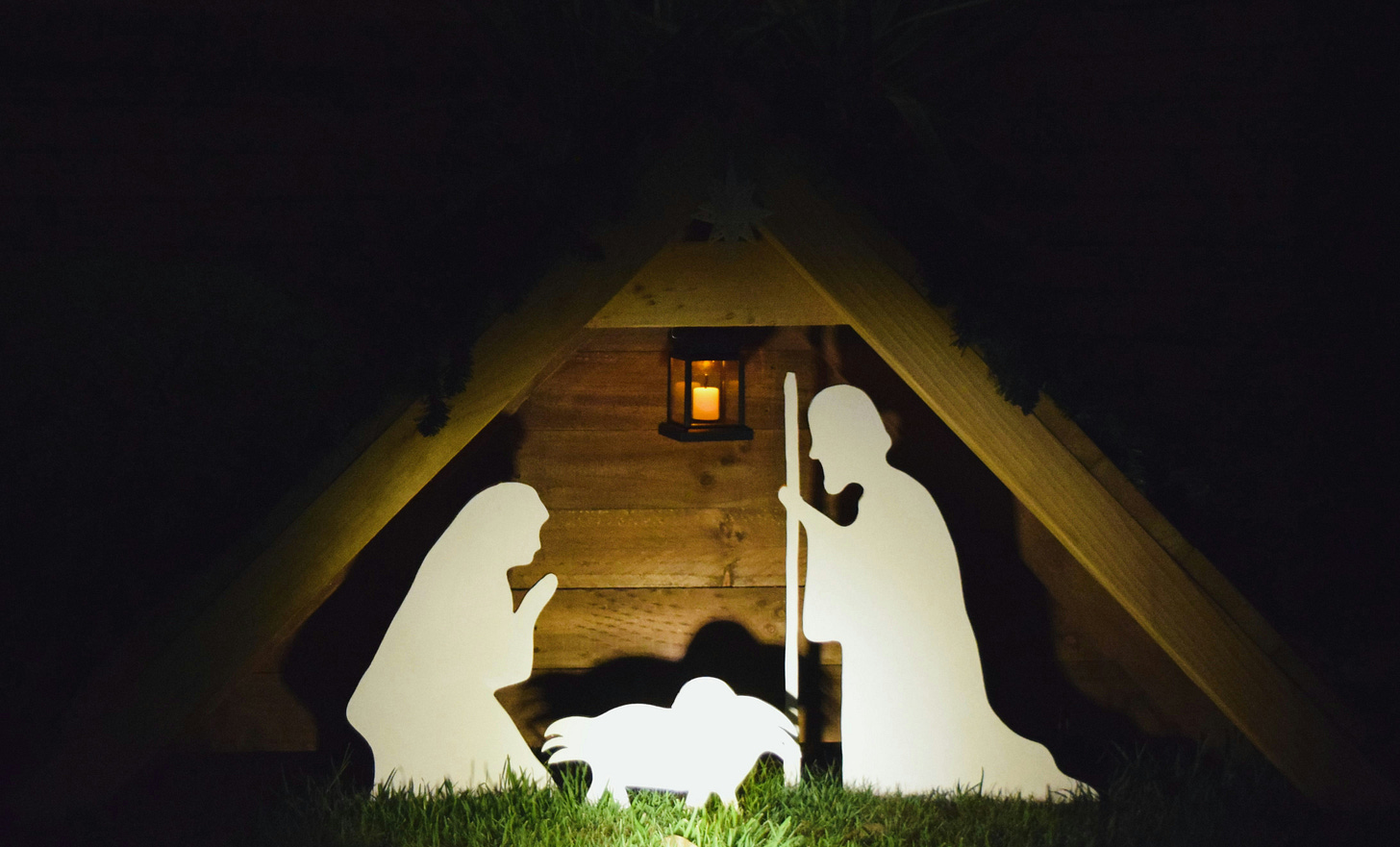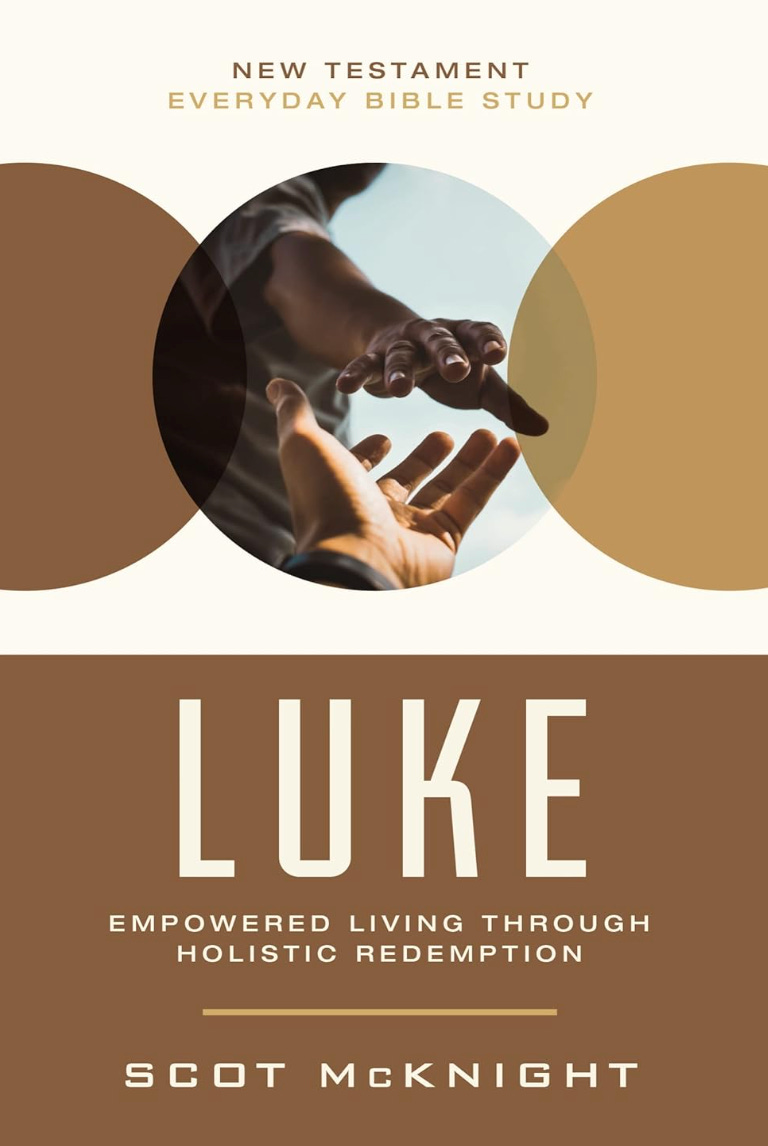From the Everyday Bible Study, Luke, questions by Becky Castle Miller.
Luke 2:1-20
2:1 In those days Caesar Augustus issued a decree that a census should be taken of the entire Roman world. 2 (This was the first census that took place while Quirinius was governor of Syria.) 3 And everyone went to their own town to register.
4 So Joseph also went up from the town of Nazareth in Galilee to Judea, to Bethlehem the town of David, because he belonged to the house and line of David. 5 He went there to register with Mary, who was pledged to be married to him and was expecting a child. 6 While they were there, the time came for the baby to be born, 7 and she gave birth to her firstborn, a son. She wrapped him in cloths and placed him in a manger, because there was no guest room available for them.
8 And there were shepherds living out in the fields nearby, keeping watch over their flocks at night. 9 An angel of the Lord appeared to them, and the glory of the Lord shone around them, and they were terrified. 10 But the angel said to them, “Do not be afraid. I bring you good news that will cause great joy for all the people. 11 Today in the town of David a Savior has been born to you; he is the Messiah, the Lord. 12 This will be a sign to you: You will find a baby wrapped in cloths and lying in a manger.”
13 Suddenly a great company of the heavenly host appeared with the angel, praising God and saying,
14 “Glory to God in the highest heaven,
and on earth peace to those on whom his favor rests.”
15 When the angels had left them and gone into heaven, the shepherds said to one another, “Let’s go to Bethlehem and see this thing that has happened, which the Lord has told us about.”
16 So they hurried off and found Mary and Joseph, and the baby, who was lying in the manger. 17 When they had seen him, they spread the word concerning what had been told them about this child, 18 and all who heard it were amazed at what the shepherds said to them.
19 But Mary treasured up all these things and pondered them in her heart. 20 The shepherds returned, glorifying and praising God for all the things they had heard and seen, which were just as they had been told.
This is the Christmas story many of us hear at a Christmas service or read on Christmas Day. It deserves to be read aloud with skill. I love to hear this text read. The birth of Jesus, as we have said a few times, rhymes with the story of John’s birth.
From Nazareth to Bethlehem
The opening verses of chapter two connect the birth of Jesus, who is Messiah and Messiah means king and king means emperor, to Rome’s current emperor, Augustus. The birth of Jesus is part of world, not just local, history. This more than suggests that he’s one of the rulers who will be brought down by the birth of king Jesus (1:52). The census mentioned in Luke 2:1-3 creates tension with the historical record since Quirinius, the governor who supervised the census, did not become governor until 6 AD, at which time he did require a census. There is no solution to this problem. What is not a problem is that taxation counters the mission of God to fill up the hungry and send the rich away (1:53). Taxation filled the vaults of the powers that be. The names in 2:1-3, then, are oppressors, and those who suffer the most are the poor – like Joseph and Mary.
Joseph and Mary travel to Bethlehem where Jesus’s birth fulfills a promise in that David was from Bethlehem (2:4; see Micah 5:2). Jesus’s birth occurs before Joseph and Mary are officially married: “Mary, who was pledged to be married to him” (Luke 2:5). There is no official marriage until the two are made one in sexual relations.
The KJV’s “no room in the inn” line, which has a history of all sorts of speculation in sermons, inaccurately translates the Greek term kataluma. That term does not mean “inn” as in a hotel but “guest room” in the very home in which they were staying. That is, the guest room did not have sufficient space for a birth, so Mary and Joseph went downstairs to the stable where they could find some privacy, where the animals were kept, and she laid her son in a feeding trough. There is no reason whatsoever to criticize some non-existent innkeeper or pretend this had something to do with money or impurity. She “gave birth to her firstborn, a son,” and Mary had other sons and daughters (Mark 6:3).
The gospel of the angel
Bethlehem was known for its sheep and shepherds, who did not have a negative reputation (in spite of what some have said). To some shepherds an unnamed angel of the Lord appears accompanied by splendorous light, something that evokes the presence of God so overwhelming the shepherds were “terrified” (2:8-9).
The angel declares the gospel to the shepherds. Here are the big terms to consider: “I gospel great joy, what will be for all the people (my translation), that a Savior has been born today who is Messiah the Lord, in the City of David” (2:10-11). You can’t really get a better heavenly message than that and, truth be told, you can’t be any more overt about some kind of message to Rome, that is, to Augustus. Or about fulfilling promises (cf. Isaiah 9:6). These terms express again holistic redemption. The “sign” is now explained – they are to go to Bethlehem and they’ll find a baby “lying in a manger” (2:12).
Behind the angel the Hallelujah chorus erupts (2:14), words that “exegete” Christmas itself: God should be praised because “on earth” God has given his Messiah-Son to bring “peace to those on whom his favor rests” (2:14). Again, we need to resist turning this “peace” into exclusively inner, personal peace. Peace is a social contagion propagated by redemption and justice.
Mary pondering
So the shepherds come into Bethlehem and find it just as the angel said, a discover that turns them into gospeling shepherds, agents of a message that on this baby the future of Israel’s redemption and peace rests. They find there the baby with Joseph and mother Mary. The history of art about Mary is that she’s a pensive, pious, even poker-faced young woman draped in blue and white. That image derives in part from “treasured up all these things and pondered them in her heart” (2:19). Mary was interpreting, tossing together, or puzzling this specific shepherd-event in light of the previous angel’s messages to her and to Elizabeth. One thing was clear: her son was destined to become the King of Israel, the Messiah. A lot was going on, more than a mind could handle.
World history indeed!
I close with an amazing statement that takes us to the deepest level of the Christmas story – God become human for us: “Through the Son, the invisible God is made visible. Through the Son, the unknowable God is made known. Through the Son, the incomprehensible love of God is made tangible” (Strawbridge, Mercer, Groves, Love Makes No Sense, 18).
How does this section challenge ideas you have heard about the nativity story in the past?
What are the holistic, earthy implications of this baby king’s birth?
How do the shepherds’ reactions to the angels compare to Zechariah’s and Mary’s angelic responses?
Have you thought of this text as a ‘gospeling’ passage before? Why or why not?
What do you learn about Jesus in this passage?
Jennifer Strawbridge, Jarred Mercer, Peter Groves, Love Makes No Sense: An Invitation to Christian Theology (London: SCM, 2019).






Thank you